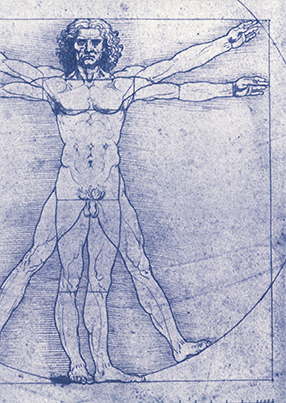Topic Director: Wendy Steiner
Richard L. Fisher Professor of English
Director, Penn Humanties Forum
For humanists, human nature is a phrase that triggers the most contradictory hopes and fears. On the one hand, it promises a common ground among us, belying the indeterminacy that even the most paradoxical postmodernist finds trying. If human nature exists, then so does the communication-both among people and across the range of disciplines. We have only to learn the parameters of what it is to be human to explain why language, the arts, social behavior, and finally everything “human” are as they are. At last the prospect nears of discovering all knowledge to be one.
On the other hand, however, human nature seems to close down individual freedom and, indeed, the humanities as such. After all these decades of discovering the political agendas hidden in essentialism, the invitation is going out once more — from biologists, psychologists, philosophers, experts in artificial intelligence — to accept a set of limits created by an inescapable collusion of genes and evolutionary adaptation and to join in a unified account of reality. If deconstruction is silent on the topic of beauty, biology is not. If relativism finds no clarity in the ideas of "evil" or "the monstrous," evolutionary psychology waxes eloquent on the subject. If Critical Legal Studies treats the law and social mores as arbitrary power-driven oppressions, certain moral philosophers welcome them as expressions of the deepest human needs.
How quickly the notion of human nature raises the specter of the Two Cultures and so many other binarisms that have become more wearying than productive in our research: nature/nurture, nature/culture, transcendentalist/empiricist, unmediated/mediated, formal/contextual, determinist/free. Yet we cannot deny, from a historical perspective at least, the importance of ideas of human nature in all areas of culture. There is no society without language, song, storytelling, building. Architectural projects — public, commercial, private, memorial — have sprung from historically specific understandings of human nature, definitions that are apparent in the choices of material, scale, shape, and historical reference. The transition from figurative to abstract art came during a radical redefinition of human nature and led to a redefinition of the purposes of art and the very meaning of the primitivist, pastoral, decadent, tragic, heroic. With the rise of positivism came the rise of literary realism and naturalism: the use of narrative to observe and experiment with the "laws of nature."
Moreover, the most uncompromising postulations of a single, physiologically determined human nature have been known to coexist with the most relativist of politics. It is hard to reconcile Chomsky's nativist arguments in linguistics, for example, with his leftist activism. Edward O. Wilson, who claims that every discipline will eventually find a home in biology, professes a thoroughgoing left-liberalism. Though it seems all too clear that human nature is a concept always motivated by ideology, it is not so clear that that ideology must logically be conservative or reactionary.
The heroic achievements of the biological and social sciences in recent years have led to research into traditional humanistic areas. This cross-disciplinary leap can be exciting, but its lack of grounding in humanistic thinking is sometimes troubling. For example, when psychologists study the effects of violence by showing experimental subjects photographs of violence, they are failing to distinguish pictures from their referents. Similarly, social-scientific studies frequently treat human beauty as if it were the same as sexual attractiveness — a trait with major reproductive advantages — whereas the whole history of post-Enlightenment aesthetics has rigorously distinguished beauty from allure. Regardless of one's feelings about Kantian aesthetics, no humanist would deal with the topic of beauty without taking Kant into account.
Under the circumstances, it seems a pity that humanists have been so silent on the topic of human nature. We at Penn have begun to consider it. Accordingly, the Penn Humanities Forum has set as its topic for 1999-2000 "Human Nature," a properly millennialist undertaking.
Home
1999—2000



